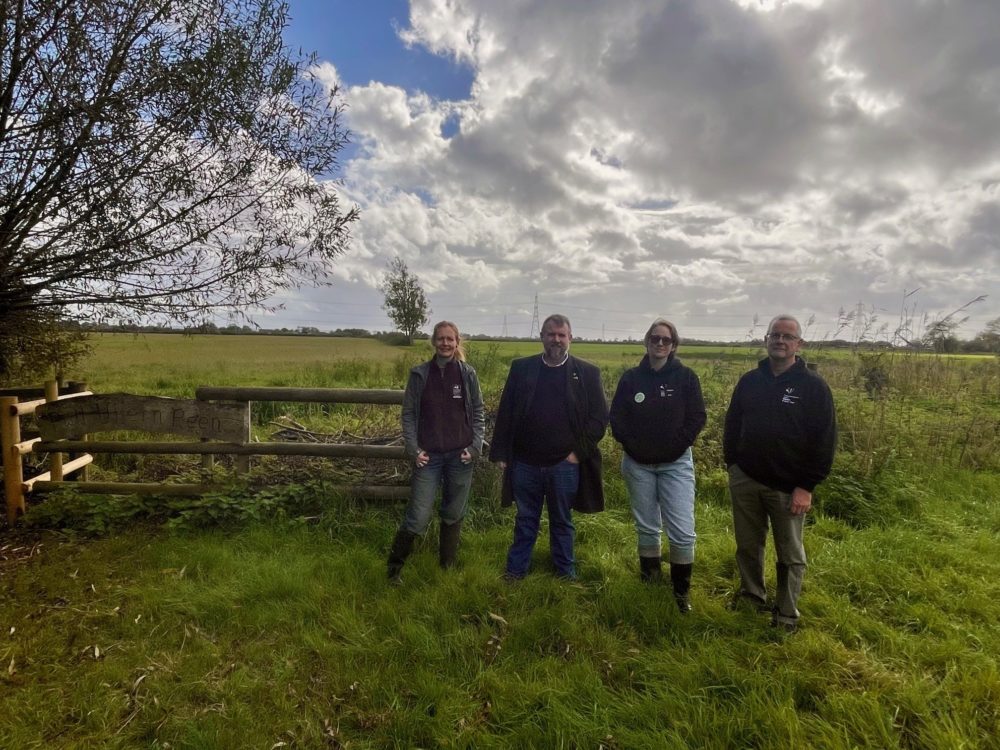Fresh concerns about solar projects on Gwent Levels

Nicholas Thomas, local democracy reporter
Changes to planning guidance could give better protection to the Gwent Levels and other areas of environmental importance.
Supporters of the wetland landscape around Newport, often dubbed Wales’ Amazon due to its ecological riches, want to see better rules in place to prevent major development of the land.
Speaking in the Senedd on Wednesday, South Wales East MS Peredur Owen Griffiths said the Levels were “truly unique” and had remained “largely untouched for centuries”.
Solar farm development
Nearly a third of the Levels classed as sites of special scientific interest (SSSIs) have been “proposed for solar farm development”, he said, adding that the prospect “beggars belief”.
“Whilst I’m in favour of solar and other forms of renewable energy, in my view, it should not be located within crucial and fragile natural habitats like these wetlands,” Mr Owen Griffiths told the Senedd.
Aberconwy MS Janet Finch-Saunders added similar concerns about agricultural land being redeveloped for energy projects in north Wales.
Rebecca Evans, the Welsh Government’s planning secretary, declined to comment on individual applications but said ministers’ planning policies take into consideration “the opportunities and the impacts proposed by solar developments”.
An ambition to meet climate targets “doesn’t mean we are going to abandon policies for the protection of our most valuable environments”, she said, adding that the Levels had been classed as a “national natural resource area”.
‘Better protection’
She said a Gwent Levels working group was tasked with achieving “better protection and management” of the area, as well as developing “better” planning guidance to “avoid further unacceptable biodiversity and landscape impacts”.
Newport East MS John Griffiths, who chairs that working group, told the Senedd he welcomed improvements made to planning guidance to date but said there was “a feeling that greater clarity is needed in terms of interpretation”.
He also raised the “cumulative impact” of solar projects, telling colleagues that “every time one is consented, it then would normally make further development more likely, given that that development has already taken place”.
Ms Evans said the nation’s “net benefit for biodiversity” policy will “seek to at least mitigate some of those cumulative impacts”.
That policy requires planning authorities to follow a “stepwise” system that ensures any environmental effects of proposed developments are firstly avoided, or mitigated where they cannot be avoided.
Compensation for environmental effects must only be accepted as an “absolute last resort” under the rules, Ms Evans said.
Support our Nation today
For the price of a cup of coffee a month you can help us create an independent, not-for-profit, national news service for the people of Wales, by the people of Wales.






Only place, where solar panels should be placed upon, are roofs.
Whatever happened to the future generations law? Dose that not apply to the desecration of the ‘unique biodiversity’ that exists within this area.
I think ideas like the future generations law and net zero when referred to by politicians are only meant to sound good they are not going ti be taken seriously by politicians who only want what they can get out of things.
100% agree
As ideology collides with reality hopefully the penny will drop: Net Zero is an idiotic idea promoted by clueless politicians like Miliband.
1000% agree
Putin agrees.